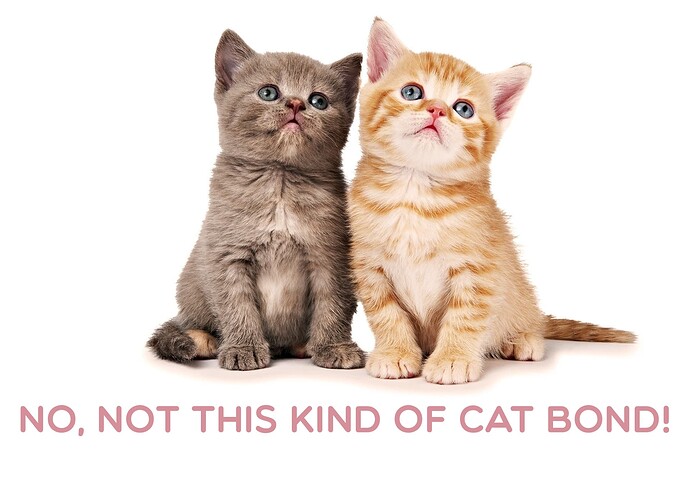What do you guys think about investing in alternative assets, e.g. watches, art, wine, whiskey barrels, sh#t like that? I was introduced to Splint Invest and I don’t know what to think about it. They promote really high returns which is always a red flag. They try to justify it with (alleged) real data. Like: “Die Flaschen wurden in den frühen 90er-Jahren für 90 GBP (2. Auflage) bzw. 100 GBP (finale Auflage) verkauft . Jetzt wird eine Flasche für über 20’000 EUR gehandelt.” I don’t doubt that statement, but I think it’s kind of stupid. How much more can you pay for a bottle of whisky? On the other hand, this kind of assets can be used to protect a portfolio. If stocks and real estate take a hit, ultra rich will probably still buy Rolex and stuff. During Covid we have seen an acceleration in wealth for the 1%, e.g. prices for used Lamborghini Urus’ went spiral, even though it’s an ugly fu#k. Would you consider investing a small portion of your money in alternative assets, and if yes do you think it is a good time now considering the inflationary prices for this kind of assets?
Personally I wouldn’t invest in such “alternative assets”, as they are not income producing assets, same as gold. The price is only driven by supply and demand, a purely speculative “investment”.
I might consider investing in gold at some point. But this is a pure gambling. Like it was discussed in some threads about very lucrative real estate investments: you take the whole risk, the organizers take their fees no matter what and they don’t even have to scam you. If it works, good for you, if it doesn’t, too bad for you.
May consider if you’re a connoisseur of antiques/collectibles yourself, focusing on your area of expertise.
Stay away from anything that is promoted to you in/as an investment vehicle.
I was considering investing into reinsurance funds to diversify, but I’m not sure how to do proper research to find a trustworthy fund with low-enough costs, a sound business plan, and available to Swiss investors.
I like the fact that the risks are understandable and, by design, uncorrelated with the stock market risks.
That is, you’re exposed to hurricanes, earthquakes and other natural disasters, which tend not to cause stocks to sink when they occur.
I wanted to step a toe into Cat Bonds some years ago as I thought that these bonds will replace re-insurance companies. However, I was not able to find a good way to invest into Cat bonds. Even if there are now ETF’s covering it like “https://www.swissfunddata.ch/sfdpub/de/funds/docs/26128#tab-content” that is not really what I was looking for also considering the TER of >1%. Please keep me in the loop if you find something
Life settlements may be worth looking at for some people, but even worse than cat bonds in terms of fund options (no ETFs AFAIK, just actively-managed funds).
With regards to collectibles and other niche tangible assets, my opinion is that you should only invest in collectibles which you yourself collect. If something is your longtime hobby, you will likely have a good understanding of the market, the emotional appeal, which items are highly sought after, etc. If in the worst case, the market crashes and you’re stuck with the items, at least you have something you love.
The problem is I don’t have the resourcec to buy a Rolex or classic Aston Martin. So the principle of splitting it over a lot of investors is not a bad idea. I would be causios when mixing luxury collectibles with investing. In the end you talk yourself into buying expensive things for the sake of returns (which don’t follow) and usually emotions are a very bad adviser in investments.
As for Cat Bonds, they are a type of insurance-linked securities (ILS). Examples are GAM Star Cat Bond - A EUR ACC H: Fonds Kurs aktuell (A1JMA8 | IE00B3Q8M574) | onvista (I think only for qualified investors, min 10k buy in), AXA IM WAVe Cat Bonds Fund A Dis Q.EUR H: Fonds Kurs aktuell (A2DWD8 | IE00BF0MWY87) | onvista (min 25k buy in). And there is even an index for Cat Bonds: Swiss Re Global Cat Bond Total Return Index. However it’s kind of hard to find information about specific funds, so I assume they are designed for qualified and institutional investors… The Swiss RE index is actually quite impressive (~7% annual return in US$). But the long tail risk is kind of daunting.
I am not familiar with Whiskey or Art but do have a decent collection of watches, which started as investment first but also became a hobby after time.
Why am I saying this? Their website and deal case studies are suggesting that the price of a Rolex Daytona will even in a bad case scenario double it’s price over the mid term. Never say never but this sounds illusionary and is a cheap way to hide their expensive fees.
Bottom line, I would never invest in that kind of platforms. What happens if the platform goes bust or all other owners want to liquidate? You are taking platform risk plus very optimistic underlying Investment risk.
I agree, the risk/return outlook is not very interesting. Do you just collect watches or do you buy and sell to generate profits? I think most investments are structured like this, management takes fees, investors take the risk (and hopefully the returns). This can be even transfered to single stocks, management takes high salary and bonus, stockholders take the risk and returns…
